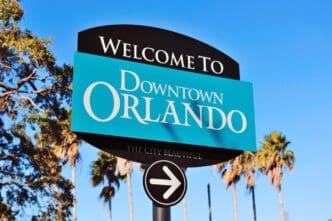As drivers traverse U.S. highways, crossing state lines often comes with a warm greeting from large “Welcome to …” signs. However, not all drivers find a warm welcome across all states. In particular, Florida has implemented restrictions on drivers holding special out-of-state licenses issued to individuals in the U.S. illegally. Wyoming has enacted similar measures this year, and Tennessee is poised to follow suit with recent legislation awaiting the governor’s signature.
This legislative stance sends a clear, albeit unofficial, message: certain states are not welcoming to immigrants lacking legal status. As President Donald Trump intensifies measures against illegal immigration, Republican lawmakers in several states are advancing laws targeting individuals without legal residency. This contrasts starkly with the policies of 19 other states and Washington, D.C., which provide driver’s licenses without requiring proof of legal status. The Justice Department is actively challenging such laws, seeking to nullify one in New York that prevents federal immigration authorities from accessing driver’s license data.
States are diverging significantly in their approaches to licensing drivers amidst federal efforts to standardize the process. Starting May 7, new national standards will require state driver’s licenses to meet the REAL ID Act’s criteria for identification at federal facilities and for domestic flights. Compliant licenses, marked with a star, demand a Social Security number and proof of U.S. citizenship or legal residency. However, states retain the latitude to issue licenses to individuals who do not meet REAL ID documentation, provided they comply with other state requirements such as vision and driving tests. In states offering these licenses to undocumented immigrants, distinguishing such licenses visually is often not possible, though some states like Connecticut and Delaware apply special markings.
In 2023, Florida took a decisive step by invalidating licenses from other states that were issued to undocumented immigrants. A law signed by Governor Ron DeSantis makes driving with such licenses a misdemeanor, punishable by fines and possible jail time. This law primarily targets specially marked licenses from Connecticut and Delaware, as noted by the Florida Department of Highway Safety and Motor Vehicles. Connecticut has issued nearly 60,700 “drive-only” licenses, while Delaware has not disclosed similar data.
Attempting to bypass Florida’s restrictions, Connecticut Governor Ned Lamont proposed ending the special designation for undocumented immigrant licenses, suggesting they receive the same licenses as those opting out of REAL ID. However, this proposal did not advance to a vote.
Beyond Florida, other Republican-led states such as Wyoming, Tennessee, Alabama, Montana, and New Hampshire have considered or passed similar laws invalidating specific out-of-state licenses. In Alabama, legislation has passed one legislative chamber, aiming to deter undocumented immigrants from entering the state. Advocates for immigrant rights in states like Alabama express concern about the impact of such laws, noting they create fear and confusion among visitors and residents alike.
Some view these legislative actions as part of a broader trend of state involvement in federal immigration enforcement. While it remains uncertain how rigorously these laws will be enforced, they contribute to a climate of anxiety among undocumented immigrants, even in states where they could legally obtain a driver’s license, such as California. Legal experts and immigrant advocates continue to monitor these developments, weighing the symbolic and practical implications of such legislation.














